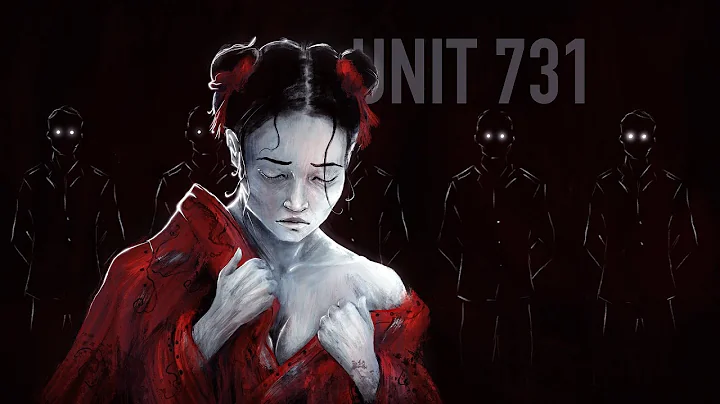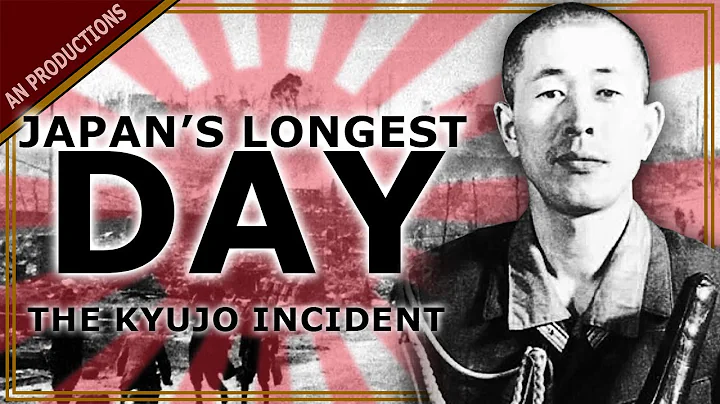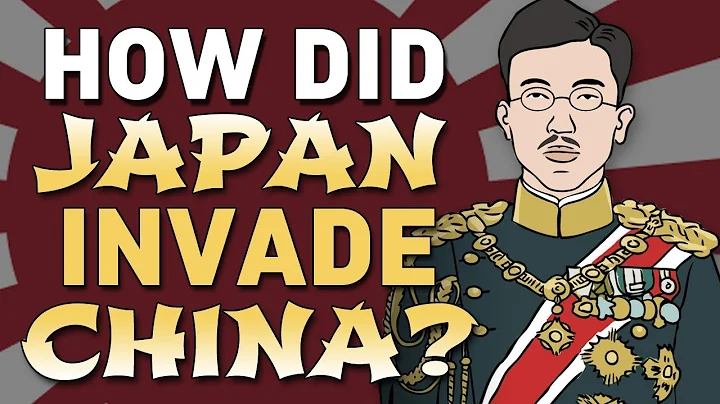On September 18, 1931, Japan launched the Wicker Lake Incident , and then began a large-scale invasion of Northeast my country. The Anti-Japanese War officially began. On July 7, 1937, Japan launched the Marco Polo Bridge Incident, which further expanded the scope of its aggression and forced my country to engage in a comprehensive war of resistance. After the outbreak of the Anti-Japanese War, what confused many people was that Western countries, which had many interests and privileges in our country, did not oppose Japan's invasion. You know, Japan's invasion of our country will definitely damage their interests in China. Let us now take a look at what European countries were thinking during the Anti-Japanese War.

After the First Opium War, The Qing Dynasty and the United Kingdom signed the "Treaty of Nanjing". Britain not only received huge indemnities and land from the Qing Dynasty, but also obtained many privileges in treaty ports and tariff agreements. After that, the Qing Dynasty signed many unequal treaties with other countries. Before the demise of the Qing Dynasty, most places in the Qing Dynasty fell into the sphere of Western influence. Western countries had more and more privileges in the Qing Dynasty, including consular jurisdiction , establishing factories, spreading religion, establishing leases, etc. Generally speaking, Western countries have many interests in our country.

After the fall of the Qing Dynasty, the newly established Republic of China fully recognized the unequal treaties signed between the Qing Dynasty and the Western powers. Western countries still have many privileges in our country. It stands to reason that once Japan invades our country, the interests of Western countries in China will be harmed. In order to safeguard their own interests, they will definitely oppose Japan. But the fact is that European and American countries were almost indifferent to Japan's invasion of our country. Although their interests are damaged, they hardly care. The reason why this special phenomenon occurred has a lot to do with the situation at that time.

First, let’s take a look at the domestic situation in our country. Before the Anti-Japanese War, the interests that Western powers had in our country were not as great as we thought. To put it simply, after entering the Republic of China, everything changed.
We all feel that the Republic of China, like the Qing government, was corrupt and incompetent, and signed many unequal treaties with the West. But the fact is that although the Republic of China was corrupt and incompetent, it was completely opposite to the Qing government in terms of betrayal. We cannot say that the Republic of China government never signed unequal treaties, but it signed very few. On the contrary, during the Republic of China, the government abolished a large number of unequal treaties through negotiations with Western countries.

Take leasing as an example, which is the most harmful to our country’s sovereignty. The Republic of China did a very good job in recovering leases. In 1927, my country recovered the British Concession in Hankou; in 1927, the British Concession in Jiujiang was recovered; in 1929, the British Concession in Zhenjiang was recovered; in 1931. Recover the Belgian Concession in Tianjin. Before the Anti-Japanese War, most of the leases were taken back by our country. As for other privileges of the great powers, there are even fewer. The Republic of China basically no longer compensated various reparations during the Qing government. Of course, reparations to Japan were still carried out, and reparations to other countries were basically abolished.

Simply put, before the Anti-Japanese War, the great powers basically had no privileges in our country. Of course, many people will say that the privileges are gone, but the economic benefits are definitely there. After all, these countries have been operating in our country for such a long time, and it is impossible that they have no economic interests in our country. It is true that European and American countries do have certain economic interests in our country, but this situation has also changed.
Before and World War I , many countries in Europe and the United States had close economic ties with our country, and our country had a lot of their property. But after the end of and , the situation obviously changed. During the First World War, the great powers had no time to take care of our country due to the war. In addition, the great powers need to import a large amount of war materials from our country, so our country's economic development has been pretty good during this period, and the control of European countries over our country's economy has obviously weakened. Coupled with the penetration of Japan and the United States into our country, the economic interests of European countries in our country are getting smaller and smaller.

After the global economic crisis broke out in 1929, the economy of the entire Western world went downhill, and their economic interests in our country became even less.Before the outbreak of the Anti-Japanese War, the two countries with the greatest economic interests in our country were Japan and the United States. Of course, as for why the United States did not oppose Japan in the early days, we will talk about it later.

That is to say, at that time, Western countries basically had no privileges in our country, and their economic benefits were getting less and less. Although Japan's invasion of our country will cause damage to their interests, the damage will not be great.
Secondly, let’s take a look at the situation of Western countries. Although Western countries had few interests in our country when the Anti-Japanese War broke out, they did exist, and they were indeed damaged. The reason why they do not oppose Japan has a lot to do with themselves. Because Western countries have their own troubles to deal with, they really don't have the energy to deal with problems elsewhere.
It sounds like there are many Western powers, but in fact there are not many at all. The largest countries are the United States, the United Kingdom, Germany, and France. As for other Western countries, they are not big countries at all.
Let’s take a look at the United States first. As mentioned above, the United States has great economic interests in our country. The reason why the United States does not oppose Japan is mainly due to the following reasons: First, the economic and trade between Japan and the United States are closer, and the trade volume between the United States and Japan is much larger than that between my country and the United States. Once the United States opposes this war, it will have a great impact on the economies of the United States and Japan; second, at the beginning of the war, the United States' interests in our country basically suffered no losses. Japan also knows that the United States is powerful, so it basically does not provoke the United States, so the United States has no reason to provoke Japan.

Third, it is related to the Soviet Union. Japan invaded our country under many pretexts, one of which was to oppose the Soviet Union. The Soviet Union was the only socialist country at the time and was hated by many Western countries, including Japan. The Soviet Union and the United States faced each other across the sea, and the United States did not want to see the Soviet Union become stronger. Moreover, the relationship between the Soviet Union and Japan was not good at first, and the United States also expected Japan to fight against the Soviet Union.

Fourth, it is related to the United States’ own military strength. Everyone knows that the United States' military strength was strong during World War II, but before World War II, the United States' military strength was really average. Both the number of troops and military equipment are far inferior to Japan. Its military strength is equivalent to the second-rate level. The reason why the United States' military strength is strong is that it slowly developed after World War II.
It was for these reasons that the United States did not initially oppose Japan.
Let’s look at the UK, France, and Germany. The main topics here are Britain and France, because Germany was a defeated country in World War I and was subject to international sanctions, so it did not have much interest in our country. Britain and France were severely damaged in the economic crisis. When Japan invaded our country, their strength was still slowly recovering. And they also faced two powerful countries, Germany and the Soviet Union.
Germany was a defeated country in World War I, and they have always wanted revenge. Because of this, these two countries have always needed a lot of energy to be wary of Germany. Moreover, Germany's performance at that time also made people have to guard against it. Germany tore up many treaties that restricted its development and was still expanding abroad.

The Soviet Union was hated by all Western countries because of its social nature. Moreover, the Soviet Union's industry developed rapidly in the early days of Stalin 's rule. Its industrial output value ranked first in Europe and second in the world. Its military numbers are also very large, and its military strength is among the best in the world. Britain and France also had to defeat the Soviet Union. After all, a powerful Soviet Union would do no good to Britain and France.
Because of this, European and American countries watched Japan's invasion of our country and remained indifferent. However, this is not the case for all countries. The Soviet Union responded very positively to Japan's invasion of our country and strongly supported our country in fighting the Japanese invaders. In the early days of the Anti-Japanese War, the Soviet Union provided a large amount of material and military weapons assistance to our country. Many military personnel were even sent to support our country, and a large number of air force volunteers also came to our country to help us fight against the Japanese invaders.

Of course, the Soviet Union also had its own reasons for doing this. The Soviet Union has always been worried about fighting on two fronts. This is the Soviet Union's biggest weakness. Germany and Japan were located on both sides of the Soviet Union. At this time, Germany was already expanding, and the Soviet Union realized that war was inevitable.So they need to support our country against Japan, and it is best to plunge Japan into our country's battlefield. In this way, Japan would have no energy to attack the Soviet Union, and the Soviet Union would not be threatened by a two-front war.
Generally speaking, no matter what decisions these countries make, they always proceed from their own national interests. They don't care whether you are invaded or not. They will only take action unless there is a serious threat to themselves. However, the situation changed after the start of World War II, especially after Japan's sneak attack on the United States, and the United States began to vigorously support our country's war of resistance. The reason why the United States does this is also to consider its own interests.
Reference:
"History of the Anti-Japanese War"












![[Full Ver.] N. Korea's nighttime military parade: New ICBM, Kim Jong-un's daughter - DayDayNews](https://i.ytimg.com/vi/VbhJalwmGq4/hq720.jpg?sqp=-oaymwEcCNAFEJQDSFXyq4qpAw4IARUAAIhCGAFwAcABBg==&rs=AOn4CLBIE-3jJUUIZ6tjQ4ioLUnQBC52rQ)








